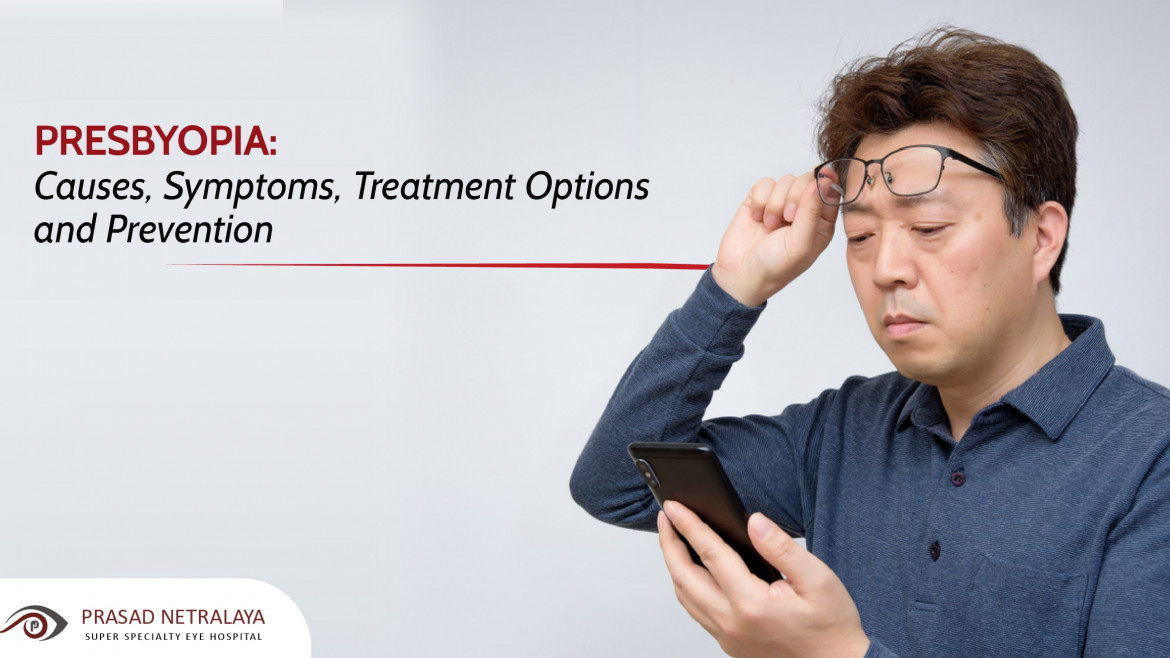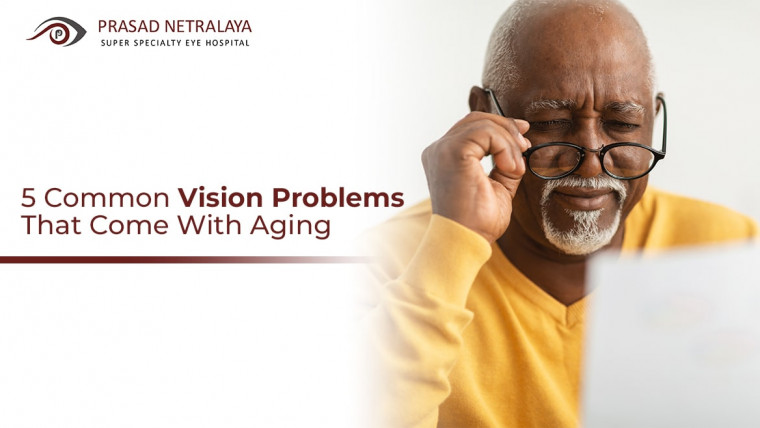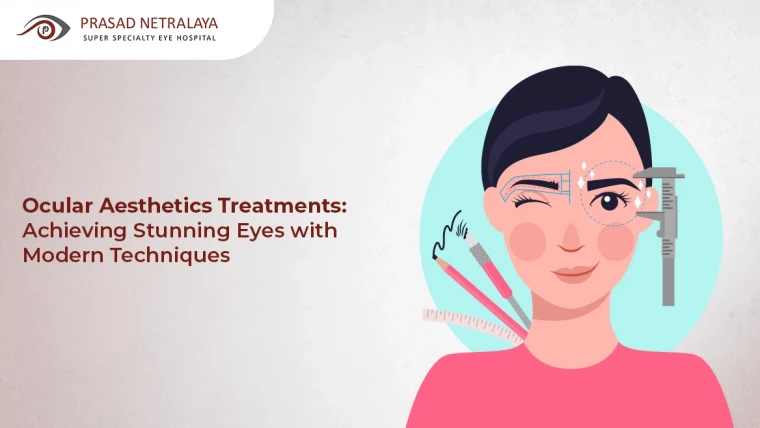Table of Contents
What Is Presbyopia?
Have you noticed, you’re holding a book farther away from your face and are squinting to read the text? If you are over 40 and are holding reading materials farther away in order to see them clearly, then chances are you are probably suffering from Presbyopia.
The term “Presbyopia” is derived from a Greek word that means “old eye.” It is a condition where your eyes gradually lose the ability to see things up-close, clearly. The ability to swiftly focus on close objects gradually slows down with this condition. With age, your lens loses the ability to change shape and bend the light rays further and focus them on your retina at the back of your eye.
Read on to understand the causes of presbyopia, risk factors, and its treatment options and prevention tips. Please note the intention of this blog is not to act as an alternative for professional medical advice, diagnosis, or treatment. We advise you to always seek the advice of a medical doctor first for any questions pertaining to your condition.
Causes and Risk Factors of Presbyopia
There is no cure for Presbyopia yet. However, there are ample treatment options that can correct your vision. Based on your preference, you can opt for eyeglasses or Presbyopia lenses to tackle this condition.
If you don’t want to wear glasses or contact lenses, talk to your doctor about different surgical options for Presbyopia.
The following three laser procedures can correct vision.
LASIK surgery (Presbyond) : Most popular surgery used to correct Presbyopia
Conductive keratoplasty: Heat from radiofrequency energy shrinks the edge of the cornea to change its curve. This may not have long-lasting effects and its effectiveness varies.
Lens implants – The lenses in each eye are replaced with artificial (intraocular) lenses.
Presbyopia prevention tips:
- Reduce eyestrain with adequate lighting
- Annual eye exams.
- Keep track of symptoms by writing them down.
- Eat a healthy, balanced diet that contains plenty of green leafy vegetables
- Exercise several times weekly
- Drink enough water to stay hydrated
- Limit alcohol
- Stop smoking
- Wear sunglasses
If you or a member of your family is experiencing symptoms of Presbyopia, reach out to us. Consult an ophthalmologist at Prasad Netralaya 一 Mangalore and Udupi’s most trusted eye care hospital. Call us at +91 9513596565 or book an appointment, if you wish to visit in person. You can also book a teleconsultation.



